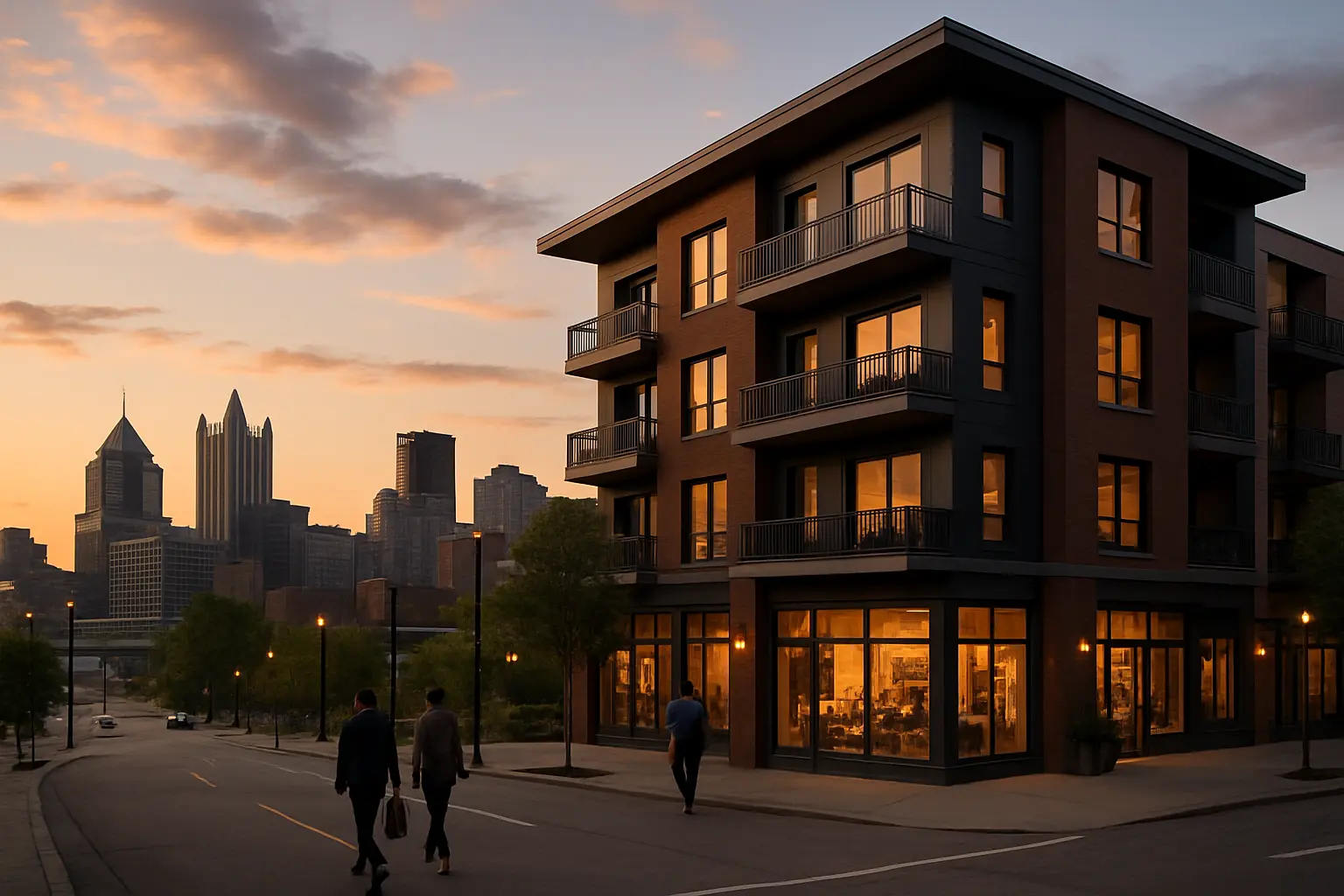Pittsburgh's Hidden Gems: Why Multi-Use Properties Are The Next Big Investment
Discover how savvy investors are maximizing returns by combining residential and commercial spaces in Pittsburgh's evolving neighborhoods.

The Rise of Mixed-Use Properties in Pittsburgh
Pittsburgh's real estate landscape is undergoing a remarkable transformation as investors increasingly turn their attention to mixed-use properties. These versatile developments, combining residential and commercial spaces, are reshaping neighborhoods and creating vibrant community hubs throughout the Steel City.
The perfect blend of live-work-play environments has become increasingly attractive to both residents and businesses, driving demand for these innovative property solutions. From East Liberty to the South Side, developers are reimagining traditional real estate models to meet the evolving needs of Pittsburgh's growing population.
Location Analysis
Several Pittsburgh neighborhoods stand out as prime locations for mixed-use development:
- Lawrenceville: This former industrial area has become a hotbed for mixed-use projects, with its perfect blend of historic character and modern amenities.
- Strip District: The ongoing transformation of this historic market district presents excellent opportunities for mixed-use developments.
- East Liberty: Continuing its renaissance, this neighborhood shows strong potential for mixed-use properties catering to tech professionals and local businesses.
- South Side Works: The waterfront location and established commercial presence make this area ideal for new mixed-use ventures.
Emerging Opportunities
Investors should keep an eye on up-and-coming areas like Hazelwood and Manchester, where early-stage development opportunities offer significant potential for appreciation. These neighborhoods show promising signs of growth while maintaining their authentic Pittsburgh character.
Investment Benefits and ROI
Mixed-use properties offer several compelling advantages for investors:
- Diversified Income Streams: Multiple revenue sources from both residential and commercial tenants provide financial stability.
- Reduced Vacancy Risk: Different property uses help buffer against market fluctuations in any single sector.
- Enhanced Property Values: Mixed-use properties typically appreciate faster than single-use properties in growing urban areas.
- Tax Benefits: Various tax incentives are available for mixed-use developments in designated improvement zones.
Mixed-use properties in Pittsburgh's prime locations have shown average annual returns between 7-12%, outperforming traditional single-use investments.
Future-Proofing Your Investment
Strategic Development Tips
To maximize the potential of your mixed-use investment:
- Focus on properties with flexible layouts that can adapt to changing market demands
- Prioritize locations with strong walkability scores and public transit access
- Invest in modern amenities that attract both residential and commercial tenants
- Consider sustainable design features to reduce operating costs and attract environmentally conscious tenants
Management Best Practices
Successful mixed-use property management requires:
- Clear separation between residential and commercial spaces
- Strong tenant screening processes for both property types
- Proactive maintenance programs to maintain property value
- Regular market analysis to optimize rental rates and tenant mix
The future of Pittsburgh's real estate market lies in creating dynamic, multi-purpose spaces that serve the needs of modern urban living. By carefully selecting locations and implementing strategic management practices, investors can capitalize on this growing trend while contributing to the city's continued revitalization.


